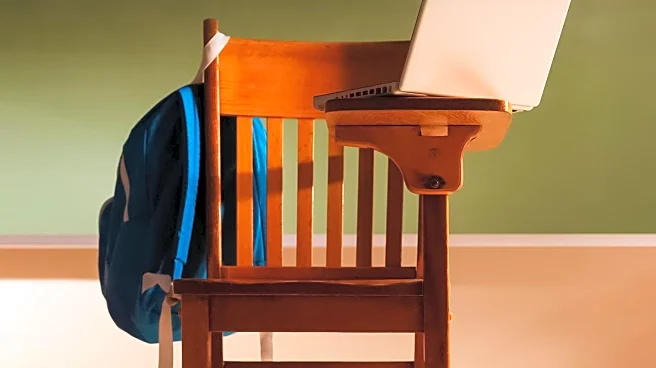What is the story about?
What's Happening?
The Atlantic has published a series of stories exploring various aspects of the back-to-school season, including how parents have increasingly influenced college dorm life. Traditionally, dorms were spaces where students could express their independence and creativity. However, the involvement of parents in furnishing and organizing these spaces has shifted the dynamic, often leading to more adult-driven environments. This change reflects broader societal trends where parents are more involved in their children's lives, even as they transition to college. The publication also discusses other educational themes, such as the impact of middle-school friendships and the ongoing debate about phone usage in schools.
Why It's Important?
The increased parental involvement in college dorms highlights a shift in the traditional college experience, where students are expected to develop independence. This trend may affect students' ability to navigate challenges and make autonomous decisions, potentially impacting their personal growth and readiness for post-college life. Additionally, the broader discussions around educational environments, such as the influence of middle-school friendships and technology in classrooms, underscore the evolving nature of education and its impact on student development. These changes could have long-term implications for educational policies and the way institutions support student independence.
What's Next?
As parental involvement in college dorms continues to grow, universities may need to reassess their policies regarding student housing to balance parental influence with student independence. This could involve creating guidelines that encourage students to take more responsibility for their living spaces. Furthermore, the ongoing debate about technology in schools may lead to new policies that address the balance between accessibility and distraction. Stakeholders, including educators and policymakers, will likely continue to explore these issues to ensure that educational environments foster both independence and effective learning.
Beyond the Headlines
The trend of increased parental involvement in college dorms may reflect broader cultural shifts towards more protective parenting styles. This could have implications for how young adults perceive independence and responsibility. Additionally, the discussions around technology in schools raise ethical questions about privacy and the role of digital tools in education. As these trends evolve, they may influence societal norms around education and parenting, potentially leading to shifts in how educational institutions and families approach student development.















